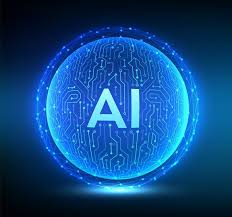


Explore the fascinating and fast-moving field of artificial intelligence with online courses. Learn artificial intelligence by studying natural language processing, reinforcement learning, predictive analytics, deep neural networks, image processing, the human brain, and more today!
Artificial Intelligence is the ability of machines to seemingly think for themselves. AI is demonstrated when a task, formerly performed by a human and thought of as requiring the ability to learn, reason and solve problems, can now be done by a machine. A prime example is an autonomous vehicle. The vehicle is able to perceive its surroundings and make decisions in order to safely reach its destination with no human intervention. Converging technologies along with Big Data and the Internet of Things (IoT) are driving the growth of AI. Machines communicate with one another and are now capable of advanced perception, capturing millions of data points in seconds, processing the information and making decisions, all in a matter of seconds. As AI evolves, machines will have more capability to physically act based on their intelligence, eventually leading to machines that can build better versions of themselves.
The field of Artificial Intelligence (ai systems) and machine learning algorithms encompasses computer science, natural language processing, python code, math, psychology, neuroscience, data science, machine learning and many other disciplines. An introductory course in AI is a good place to start as it will give you an overview of the components bring you up to speed on the AI research and developments to date. You can also get hands-on experience with the AI programming of intelligent agents such as search algorithms, games and logic problems. Learn about examples of AI in use today such as self-driving cars, facial recognition systems, military drones and natural language processors.
Go further with courses in Data Science, Robotics and Machine Intelligence. Learn the fundamentals of how robots operate, including how to represent 2D and 3D spatial relationships, how to manipulate robotic arms and plan end to end AI robot systems. In Machine learning, explore unsupervised learning techniques for data modeling and analysis including data clustering, computer vision, reinforcement learning, problem solving, machine learning algorithms, image recognition, data mining, speech recognition matrix factorization and sequential models for order-dependent data.
Start with Artificial Technology and get an overview of this exciting field. If you are unfamiliar with basic computer science and programming, it will be helpful to take and introductory class to learn Python, R or another programming language commonly used in data analysis.
This Artificial Intelligence Engineer Master’s Program, in collaboration with IBM , gives training on the skills required for a successful career in AI. Throughout this exclusive online course, you'll master Deep Learning, Machine Learning, and the programming languages required to excel in this domain and kick-start your career in Artificial Intelligence.
Popular courses are Practical Machine Learning
If you need training for 3 or more people, you should ask us about onsite training. Putting aside the obvious location benefit, content can be customised to better meet your business objectives and more can be covered than in a public classroom. It's a cost effective option. One on one training can be delivered too, at reasonable rates.
Submit an enquiry from any page on this site, and let us know you are interested in the requirements box, or simply mention it when we contact you.
All $ prices are in USD unless it’s a NZ or AU date
SPVC = Self Paced Virtual Class
LVC = Live Virtual Class
Our clients have included prestigious national organisations such as Oxford University Press, multi-national private corporations such as JP Morgan and HSBC, as well as public sector institutions such as the Department of Defence and the Department of Health.












